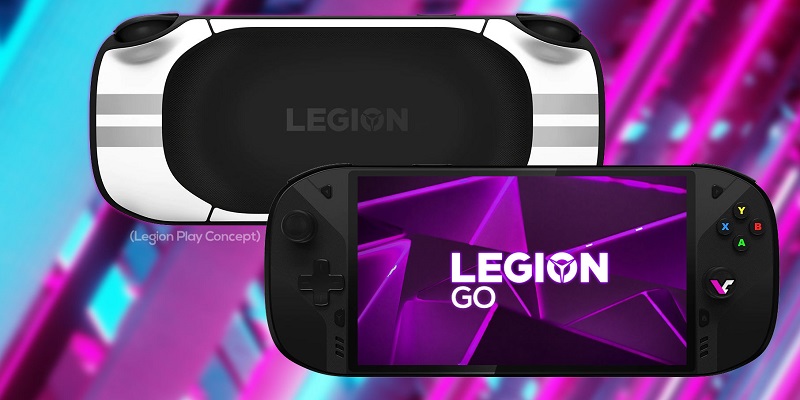Lenovo is set to make a groundbreaking entry into the handheld gaming console market with its latest offering, the Lenovo Legion Go. Powered by AMD’s Ryzen Z1 APUs, this highly anticipated device is poised to provide gamers with a unique and immersive gaming experience. By adopting a “hybrid” approach and integrating popular elements from its competitors, Lenovo aims to set itself apart in the gaming console industry.
Hybrid Approach and Integration
Lenovo has taken a bold step by combining the best features from its competitors and integrating them into a single package with the Legion Go. This hybrid approach ensures that gamers can enjoy an array of features without compromising on performance or convenience. By learning from industry leaders, Lenovo is effectively catering to the evolving demands of gamers.
Similarities with Apple’s ‘Vision Pro’
Taking a cue from Apple’s latest ‘Vision Pro’ announcement, Lenovo aims to provide users with an unparalleled immersive gaming experience through the Legion Go. By leveraging advanced technology, the device offers a seamless blend of cutting-edge visuals and immersive sound to transport gamers into their virtual worlds.
AR Glasses Integration
One of the most remarkable features of the Lenovo Legion Go is its integration with AR (Augmented Reality) glasses. However, the success of this integration hinges on power consumption management. Lenovo faces the challenge of balancing the power requirements of the AR glasses without compromising the overall performance of the handheld device. To overcome this hurdle, the company may need to incorporate a larger battery and an enhanced cooling system, ensuring optimal functionality.
Display and Design
The Legion Go is rumored to sport an 8-inch screen with significantly smaller bezels, offering an expanded viewing area for gamers. This design choice not only enhances the visual experience but also makes the device more portable and ergonomic. Gamers can expect to enjoy exceptional graphics and an immersive gameplay environment with the Lenovo Legion Go.
The Legion Go features AMD’s Ryzen Z1 APUs, which have gained immense traction in the gaming industry. These powerful APUs provide the necessary horsepower for seamless gaming performance by delivering smooth graphics, high frame rates, and responsive gameplay. With the growing popularity of Ryzen APUs, the inclusion of these processors positions the Legion Go as a formidable competitor in the gaming console space.
Release and Price
Enthusiasts anxiously await the launch of the Lenovo Legion Go, projected to occur at IFA 2023, a consumer electronics show held in September. While details about the pricing remain undisclosed, industry speculations suggest that the Legion Go will fall within the higher end of the spectrum, comparable to ASUS’s ROG Ally. However, the additional features and innovative design of the Legion Go make it a strong contender in the premium gaming console market.
Lenovo’s Legion Go promises to redefine the handheld gaming console landscape with its hybrid approach, immersive features, and integration with AR glasses. By incorporating elements from competitors and utilizing the power of AMD’s Ryzen Z1 APUs, Lenovo has positioned itself as an innovator in the gaming industry. As anticipation builds for its release at IFA 2023, gamers and tech enthusiasts eagerly await the Legion Go, expecting it to make a lasting impression and carve a niche for itself in the gaming console market.

